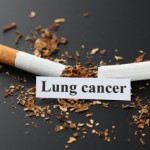I've seen a number of articles in The Wall Street Journal recently discussing the use and misuse of legal pain pills. I had planned to finish this series of blog posts today, but something changed my mind.
There was a July 2006 British House of Commons report authored by the UK Science and Technology Select Committee titled Drug Classification: making a hash of it. In brief it suggested the UK's system of classifying recreational drugs should be revised toward a more scientific measure of harm. Such a system was published in The Lancet in 2007 with the article's title being "Development of a rational scale to assess the harm of drugs of potential misuse."
The article was gripping, with the UK cost of drug misuse, in three spheres--healthcare, societal and resultant crime--being estimated at 10-16 billion British pounds a year. Looking at the exchange rates for 2007, one can approximately double that number, so we're looking at $20-32 billion/year in the UK alone.
Two expert panels were assembled (one composed of psychiatrists who specialized in addiction) and their results were compared in three areas; physical harm, dependence and social harms. The drugs they were compiling data on were not quite what I expected. In addition to familiar illicit drugs (e.g., heroin, LSD, ecstasy and cocaine), they included khat, a stimulant-containing leaf that is chewed by ~10 million people worldwide (mostly in East Africa and the southwestern portions of the Arabian Peninsula). They also rated methadone and buprenorphine, drugs that are used in combatting withdrawal symptoms in patients being treated for addiction to narcotics.
I thought the most interesting portion of the study was the inclusion of alcohol, tobacco and benzodiazepines (e.g., Klonopin, Valium, Xanax and Ativan) and the comparison of the three-sphere costs of these drugs with those of illegal substances.
Benzodiazepines are prescribed for anxiety and insomnia; they are widely used and relatively safe, but certainly can be addicting. Alcohol and tobacco, of course, are available without any doctors prescription.
In recent years we've been repeatedly told of the positive effects of red wine, especially as decreasing the risk of coronary heart disease . A health writer for the Beth Israel Deaconess Medical Center, a Harvard Medical School teaching hospital, published a 2008 review of the subject. The bottom line was 1). there were no randomized controlled studies on the subject; 2). exercise and a well-balanced diet can offer similar health benefits and 3). it's not possible, at this time to accurately predict who will develop alcohol dependence. The final paragraph of the paper said: "If you don't drink, don't start. If you drink excessively, stop. And if you drink moderately, you may continue to raise your glass and proclaim...'to my health!'"
The study in The Lancet concluded that the current UK Misuse of Drugs Act (1971 version amended) was insufficient. That Act classifies drugs into three categories from A as the most harmful to C the least. But tobacco and alcohol account for about 90% of drug-related deaths in the UK and aren't on the list. Long-term smoking (over the age of 30) reduces life span by ten years on average. Smoked tobacco is the most addictive commonly used drug was the group's conclusion, with heroin and alcohol somewhat less so. Tobacco is estimated to cause up to 40% of all hospital illness and 60% of drug-related fatalities. Alcohol intoxication often rsults in violent behavior (I see this in our local paper on a regular basis) and is a common cause of auto and other accidents.
So where should we start in fighting drug abuse?



